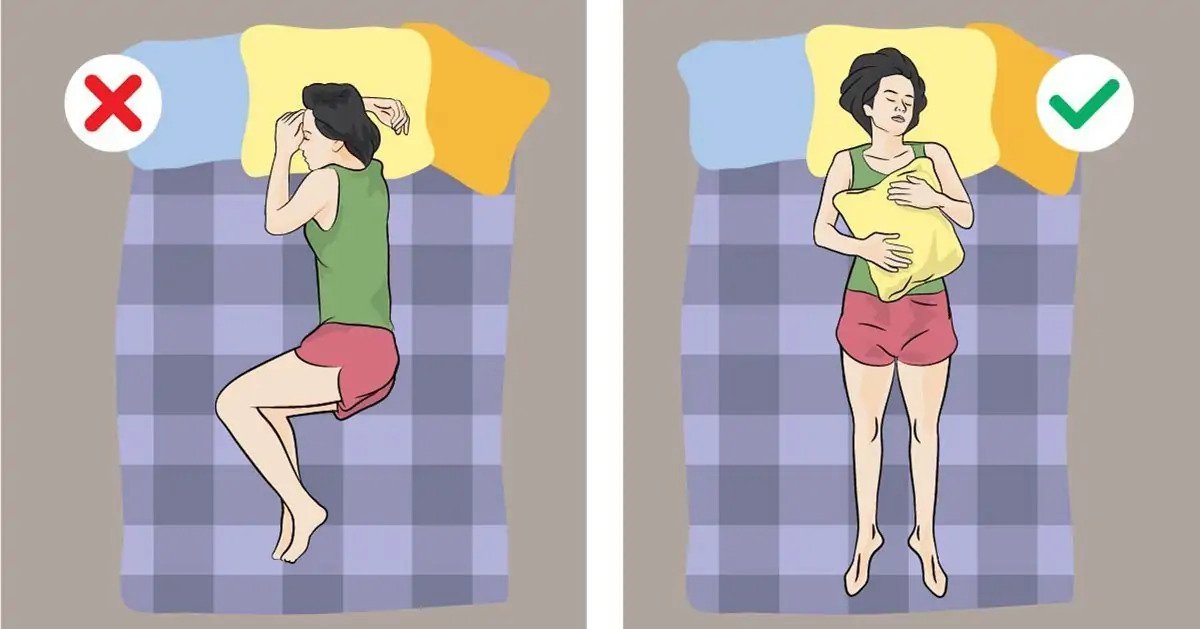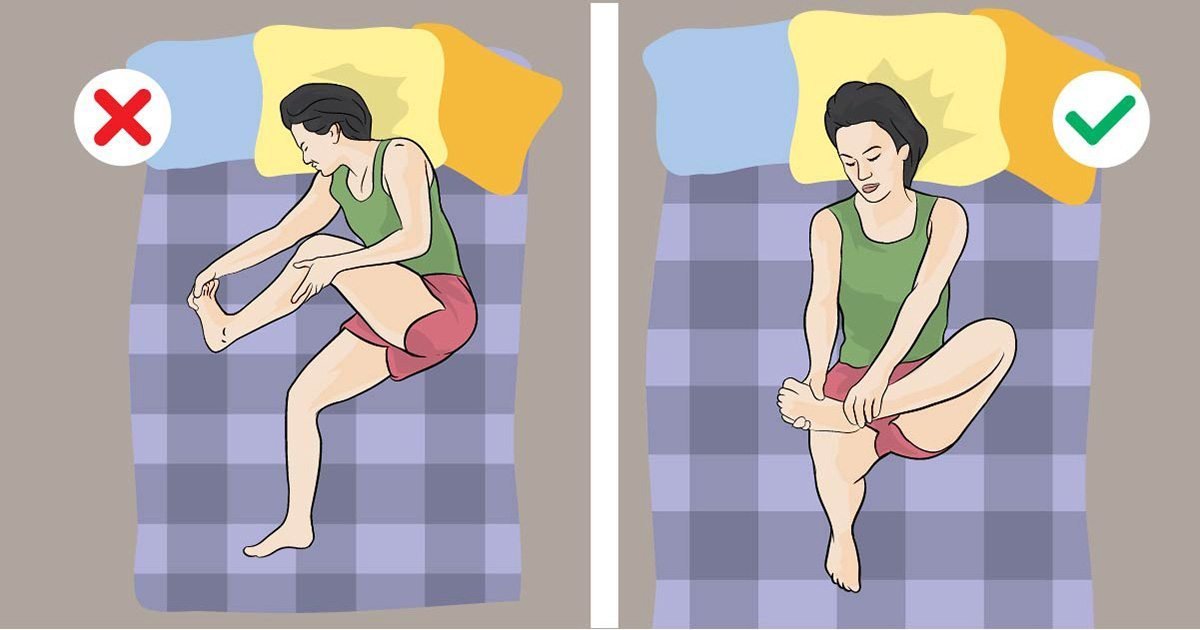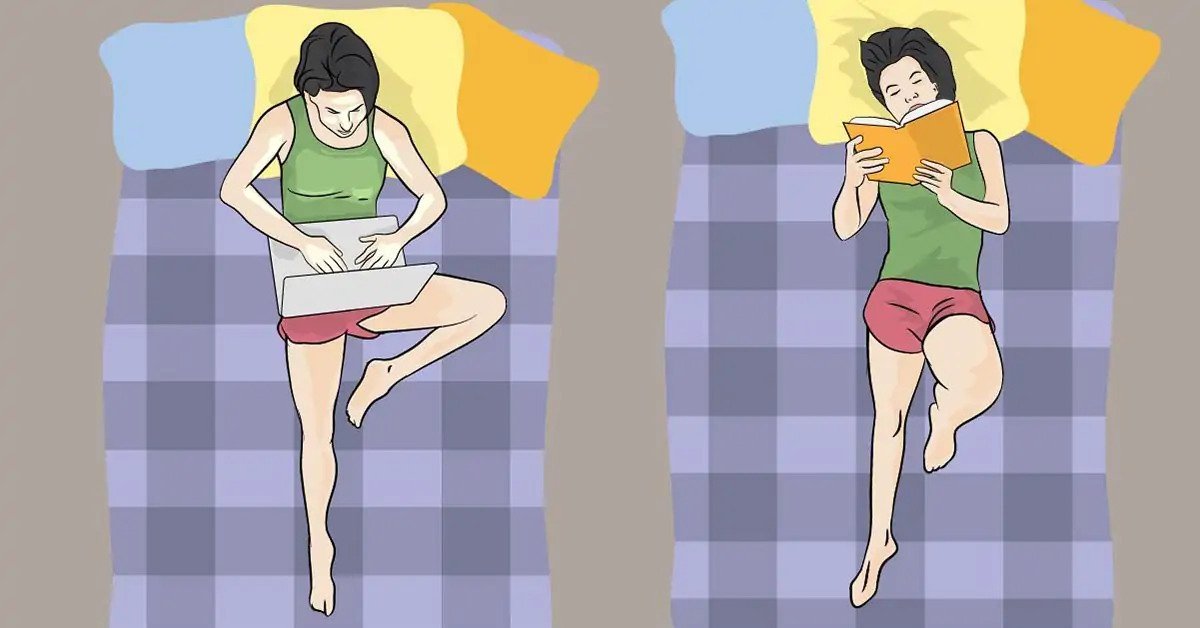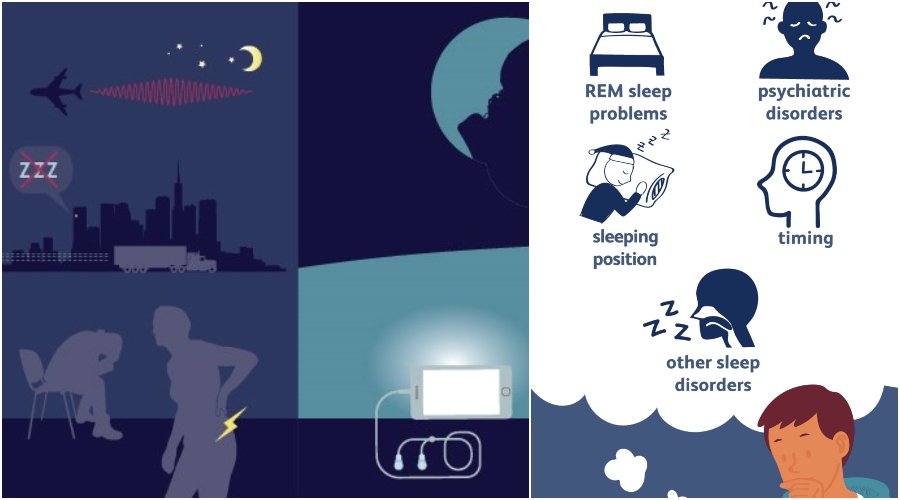We all sometimes have problems with sleeping, waking, or having bad dreams. If sleep issues are affecting you, we can help you tackle them. Good sleep is necessary for optimal health and can affect hormone levels, mood and weight. Sleep problems, including snoring, sleep apnea, insomnia, sleep deprivation and restless legs syndrome, are common.
Back pain. Neck pain. Tossing and turning. Snoring. Leg cramps. Everyone has their own unique set of sleep issues that keep themselves. For many people, sleeping is exhausting! Fortunately, we’ve discovered ways to cure all of your sleepless nights. By following these recommendations, you may be able to fix all of your frustrating sleep troubles for good!
Test out these great sleep tips, then let us know how you sleep!
Back Pain:
If you wake up with a stiff or sore back, it’s extremely important that you maintain the normal curves of your spine. You can do this by doing the following:

- Sleep on your back: Individuals with back pain sleep best on their backs and with a pillow under their knees. The pillow helps to restore the natural curve of the spine as well as to reduce tension in the tendons. If you need additional support, place a small rolled towel under your lower back.
- Like sleeping on your stomach? There’s a position for you too! Place a pillow under your lower abdomen and pelvis so that the small of your back is not inclined to bend forward.
- Or maybe you’re a side sleeper? Sleep in the fetal position by drawing your legs up towards your chest and keeping your spine naturally arched. Place a small pillow between your knees to take tension off your lower back.
Related article: 9 Fabulous Foods to Help You Sleep Better And Feel Revitalised
Shoulder Pain:
If you wake up with a single sore shoulder every morning, it’s probably because you sleep on the same side every night. Avoid sleeping on your stomach as it causes misalignment of the shoulders.

- Sleep on your back: Avoid fluffy pillows, as these also cause shoulder misalignment. Place another pillow on your stomach and hold it to ensure that your shoulders are in the correct and stable position.
- Can’t sleep on your back? Try sleeping on the side that doesn’t hurt you. Draw your legs up into the fetal position and place a pillow between your knees. Avoid placing your hands under your head, as this causes your shoulders to move into and rest in an unnatural position.
Related article: 5 Yoga Poses To Reduce That Hideous Hangover In The Comfort Of Your Own Bed
Neck Pain:
If you suffer from neck pain, your neck needs better support while you sleep.

- Sleep on your back with a pillow under your head and two additional pillows under each arm: Choose your pillows very carefully, as much of your pain has to do with it rather than your sleeping position. Opt for an orthopedic or roll pillow.
- If you’re a side sleeper, use a nice flat pillow – ideally one no bigger than 6 inches high: Ideally, your pillow should be no higher than the width of your shoulder. A pillow that is any higher than that causes your neck to rest in an unnatural position.
- If you’re a stomach sleeper, use the thinnest pillow you can find: Sleeping on your stomach is one of the worst positions you can sleep in if you suffer from neck pain, but if it is the only way you can sleep, do so on a very thin pillow.
Related article: Beat Stress With These 5 Yoga Poses And Refresh Your Body And Mind Daily
You Can’t Wake Up:

Can’t wake up? Easy. Go to bed at the same early time each night, then set your alarm for the same time every morning (even on weekends). After a couple of weeks of doing this, your body’s internal alarm clock will start pushing you out of bed before your actual alarm even starts to go off.
Related article: Speed Up Your Metabolism With These Super 5 Fat-Burning Foods
Snoring:
Snoring is one of those things that keep other people up, and can actually harm a relationship. Fortunately, if you’re a snorer, there are things you can do to ensure your partner has a peaceful night’s sleep.

- Avoid sleeping on your back. Sleeping on your back allows your throat tissues to sag and your tongue to fall backward into your throat, narrowing the airway, thereby causing the snoring.
- Choose your pillow wisely. Overly soft pillows tend to exacerbate snoring, as they allow you to tilt your head back even more. If you want to use a soft pillow, place another pillow beneath it for more elevation.
- Sleep on your side. With your head lying in its natural position, there will be no way for your airflow to become restricted.
- Exercise the muscles of your tongue and throat. This will help strengthen them and reduce snoring.
Related article: Compliment Your Routine With This 5 Move Warm-Up and Cool Down Workout
Leg Cramps:
Have you ever stretched just a little too much while sleeping and woken up with screaming pain in your calves or other leg muscles? Charley horses are PAINFUL with a capital “P,” and despite popular belief, are not just a byproduct of dehydration.

Almost 80% of people suffer from leg cramps while sleeping, and this can be related to some sort of nerve damage, disease, or lack of trace elements. If you get leg cramps in your sleep often, talk to a doctor. However, if it’s an occasional issue, simply stop the cramps as they arise by stretching the calf muscle. You can also try stretching or massaging your legs before bedtime.
Related article: Tone Your Whole Body With This 15-Minute Winter Workout
Lying Awake:
One reason so many people are unable to fall asleep these days is electronics. The blue light from phones, iPads and laptops affects our sleep cycles and urges your mind to stay awake when your body says it wants to sleep. I know it may be difficult but put all electronics away even as much as an hour before bedtime.

Additionally, don’t consume any caffeine at least six hours before bedtime. This means no chocolate – sorry! Don’t just exercise in the mornings – come up with an afternoon routine too. This will help tone your whole body, improve circulation, and prepare your body for bed at a decent hour (as it will be exhausted!).
Related article: 10 The Most Alkaline Foods That Help Balance Body pH
Frequent Waking:

If you frequently wake up in the middle of the night, it may have something to do with your room’s temperature. The ideal sleeping temperature is 20-22 degrees Celsius. Furthermore, don’t consume alcohol before bedtime, as alcohol disrupts the water balance in your body and negatively affects your sleep cycle.
Related article: Try These 6 Restorative Poses From The Comfort Of Your Bed To Assist A Refreshing Vibrant Sleep And Body
Heartburn And Aching Legs:

- Do you suffer from heartburn? Lie on your left side, as this prevents stomach contents from making their way back up into the oesophagus, thereby preventing heartburn.
- If your legs ache at night, keep your legs lifted with a roll pillow or the foot of your bed. This will allow the venous blood to run downward, alleviating pain. Also, try lightly massaging your legs before settling down for the night, and avoid consuming any caffeine at least six hours before crawling into bed.

